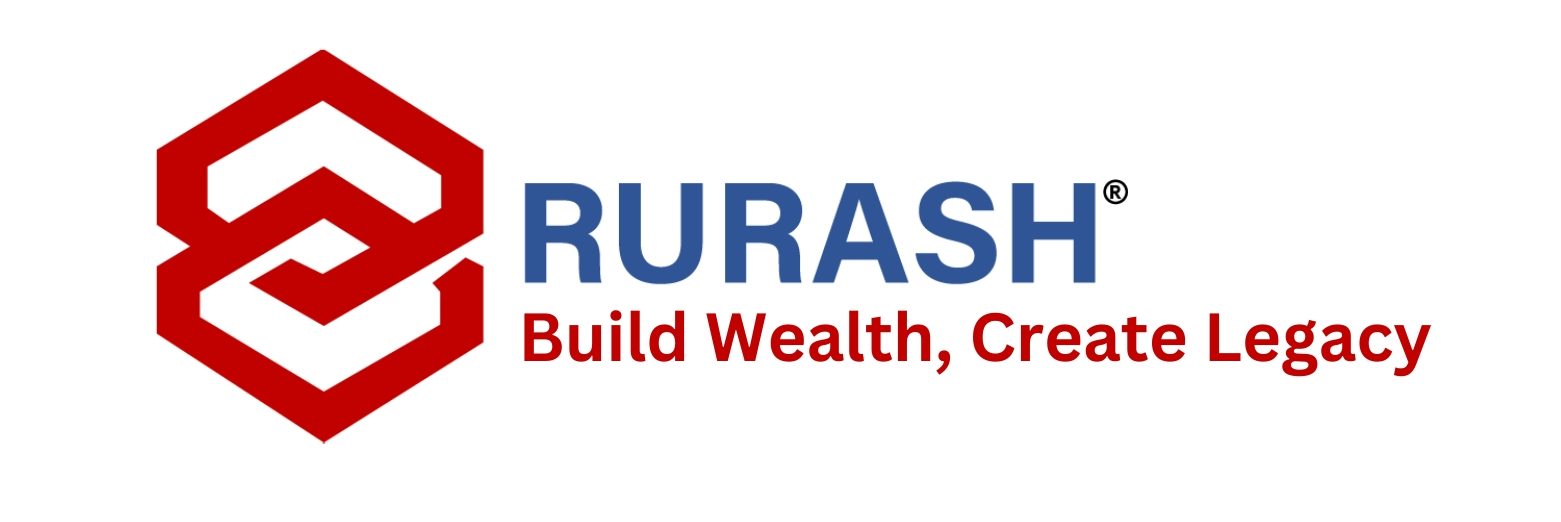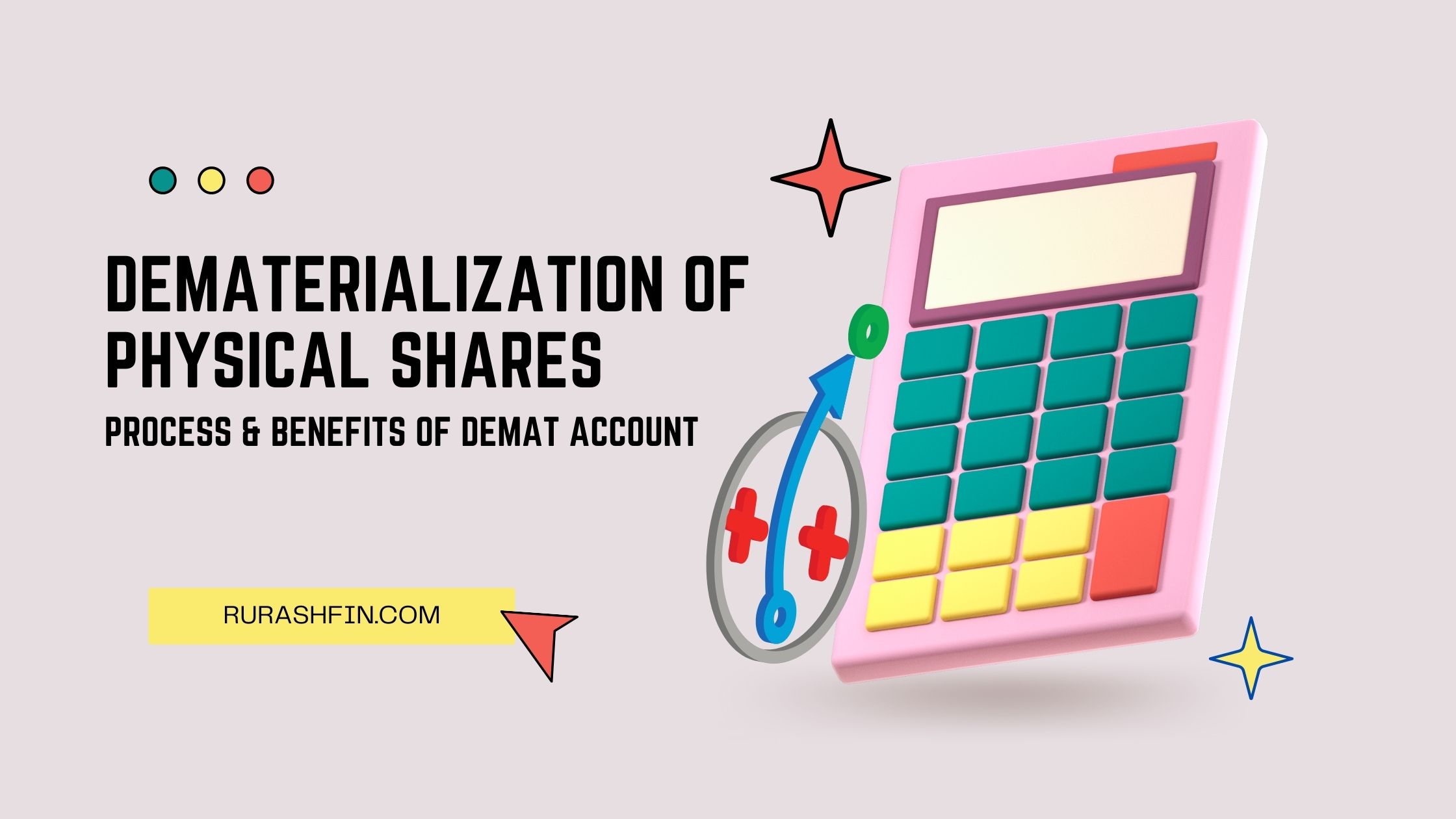INTRODUCTION:
Dematerialisation concept took place in 1996 with the formation of National Securities Depository Ltd. (NSDL) and it enjoyed a virtual monopoly till establishment of another depository called Central Depository Services (India) Ltd. (CDSL). And thereafter, amidst competition, investors at large gain benefits of better servicing and the reduced cost of dematerialization process.
The only difference between both the depositories is their operating markets. While NSDL has National Stock Exchange (NSE) as the primary operating market, CDSL’s primary market is the Bombay Stock Exchange (BSE).
Dematerialization is the process by which a client can get physical certificates converted into electronic balances. An investor intending to dematerialise its securities needs to have an account with a DP. The client has to deface and surrender the certificates registered in its name to the DP.
Dematerialization process consists of four primary parties: depository, issuer, beneficial owner and depository participant. There are two depositories in India— National Securities Depository Limited and Central Securities Depository Limited. The issuer is the company that floats the shares whereas the depository participant is a SEBI-registered entity that acts as an intermediary between the investor and the depository. Investors avail depository services only through depository agents.
As per the data available on NSDL/CDSL website, as of February 28, 2022, it had 26069206 investor accounts and 57013 DP service centres. The demat custody it had on the said date was valued at Rs. 290.72 lakh crores. While CDSL had 60762732 investors account with 584 depository participants at 21541 locations and the custody valued at Rs. 356.76 cr. on the said date. Thus CDSL became the first depository with over 6 crore accounts.
Though Demat is the short form of dematerialization in market terminology, in my view Demat stands for Documents Electronically Materialized and Tradable.
While till 2020 physical mode of shares were trades on a case to case basis, it is now totally forbidden and any security transaction has to happen, it should be entertained via demat mode only. And hence, it is now compulsory for any investor to have its physical shares dematerialized as soon as possible.
The process of DEMAT ACCOUNT opening:
For opening a demat account one has to approach his banker/broker or any other DP. After filling in application form along with required KYC documents one can open a demat account. To facilitate demat or digitization services at rural levels, Government of India has established Common Services Centres (CSC) at the village levels. This services are also available with gram panchayats.
CSCs are the access points for delivery of various electronic services to villages in India, thereby contributing to a digitally and financially inclusive society. As of March 2020, there are over 360,000 operational CSCs in India active in Indian villages at a gram panchayat level. To know the nearest CSC, you can call 1800-121-3468 or visit closest gram panchayat.
A person who wants to open demat account needs to approach such centre with his KYC documents like PAN Card, Aadhar Card, Bank account details (Passbook, cancelled cheque) and has also to give his mobile number, email ID to complete the process.
Once demat account is opened, one has to approach nearby security broker for opening his trading account. Both this accounts are to be linked with the bank account of applicant for future trade purposes.
Demat account opening process use to take one to two weeks till early 2020, but thereafter, it has become speedier due to online process and now it happens in couple of days, in many case within two days.
The process of DEMAT OF PHYSICAL shares:
Once demat account is opened, account holder has to request DP for supply of Demat requisition book (also called Demat Slip) and Demat Instruction book (it is also called demat cheque). Details of physical shares to be filled in the demat requisition forms and all these documents are to be submitted to DP for onward process. Once the demat process completes, your shares get credited to your demat account. Physical share demat process takes two to three weeks for completion of process if no objections received in the form of technicality, signature tally etc.
Steps to fill the De-materialisation request form (DRF) :
- Enter the Date and Client ID.
- Fill the names of the holder.
- Provide below details of the security held:
– Company Name.
– Security Type (Equity/Bond/Others)
– Quantity to be Dematerialized (in words and figures)
– Face Value.
– ISIN
– Folio No.
– Certificate No.
– Distinctive No.
– Quantity.
– Total No. of Certificates. - Specify if the security is free or under lock-in.
- Mention the lock-in reason and release date (if applicable)
- Provide signature of the all the account holders.
Benefits of DEMAT:
Dematerialization has many benefits which are as under:
- Seamless and quicker settlement process.
- Secured – No risk of theft.
- No risk of damage to physical security.
- On the go portfolio tracking.
- Nomination facility.
- Reduces Cost.
- Can avail Margin against shares and collateral facility.
- Elimination of Odd lot issue.
- Ease in participating and receiving Corporate benefits like buyback, dividends, bonus.
Demat Process and other CHARGES:
For opening a demat account one needs to pay the defined charges which differs from DP to DP. Off late due to cut throat competition, many broking houses have waived account opening, annual maintenance cost (AMC) charges. However, while any credit to demat is free of cost, any debit to demat account is being charged based on Depository/DP norms. One need to check on this before opening demat or trading account.
A WORD OF CAUTION:
SEBI has mandated to convert all physical shares to electronic format by 1st April 2019 failing which you cannot transfer or sell shares from one person to another. This rule is an exception in the case of transmission and transposition. The word ‘transmission’ means devolution of title to shares otherwise than by transfer, for example, devolution by death, succession, inheritance, bankruptcy, marriage, etc. The transposition is to de-materialize jointly held physical shares that requires the names on the joint Demat account should be in the same sequence as on the share certificates.
If one has to believe the security market murmuring, all sort of investment instruments will be in demat forms sooner or later. Hence considering this, a Demat account is a MUST like bank account.
RURASH is amongst India’s tech driven investment management company, providing financial solutions to augment the client’s wealth and facilitate building a legacy.
For any guidance regarding financial instruments, Connect with the relationship manager now on Call at +91 22 4157 1111 or write to: demat@rurashfin.com.
Also Read: Possible Problems and Solutions in Converting Physical Share Certificates to Demat form?

